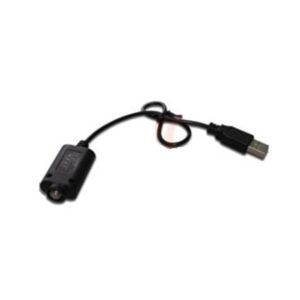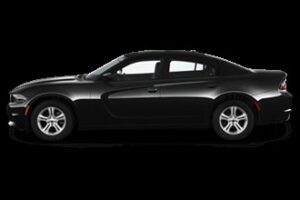Does your battery charge while idling? It’s a common question that many car owners have. The answer, unfortunately, is not as straightforward as a simple yes or no. While some vehicles do have the capability to charge the battery while idling, others may not. If you’ve ever found yourself wondering about this, fret not. In this article, we’ll delve into the intricacies of battery charging while idling and explore potential solutions to ensure your battery remains charged and your vehicle always ready to go. So, let’s dive right in and shed some light on the topic of battery charging while idling.
Does Your Battery Charge While Idling?
When it comes to our vehicles, we often find ourselves wondering about various aspects of their functionality and performance. One common question that arises is whether or not a car battery charges while idling. It’s a valid concern, especially with the increasing number of stop-and-go traffic situations we encounter in our daily lives. In this article, we will explore the topic of whether or not your battery charges while idling, and delve into the factors that affect its charging process.
Understanding the Basic Functionality of a Car Battery
Before we delve into the topic of charging while idling, it’s essential to have a basic understanding of how a car battery functions. Your vehicle’s battery serves as a vital component, providing the necessary electrical power to start the engine and operate various electrical systems. It acts as a storage unit, storing energy generated by the alternator or charging system when the engine is running.
Typically, a fully charged battery is essential for starting the engine, while the alternator takes over to maintain the battery’s charge and power the electrical systems while the vehicle is running. However, the charging process isn’t as straightforward when the engine is idling.
Factors Affecting Battery Charging While Idling
Several factors come into play when considering whether or not your battery charges while idling. Let’s take a closer look at these factors and how they influence the charging process:
Engine Speed
The speed at which your engine is idling can significantly impact the battery charging process. In most vehicles, the alternator doesn’t generate sufficient electrical current at low engine speeds, such as when idling. This limitation can result in a slower charging rate or sometimes even a lack of charge.
Electrical Load
The electrical load placed on the battery while idling affects its charging capability. Various electrical systems, such as headlights, air conditioning, and entertainment systems, draw power from the battery. If you have multiple systems running simultaneously, the battery may struggle to charge efficiently, especially at lower engine speeds.
Battery Condition
The overall health and condition of your battery play a crucial role in its charging capabilities. A worn-out or faulty battery may struggle to hold a charge, even with optimal charging conditions. Regular battery maintenance and replacing old batteries are essential to ensure efficient charging and prevent unexpected breakdowns.
Charging System Efficiency
The effectiveness of your vehicle’s charging system, including the alternator and voltage regulator, also affects the battery’s charging process. A malfunctioning or inefficient charging system can lead to inadequate charging even while idling.
Optimizing Battery Charging While Idling
While idling may not provide the ideal charging conditions for your battery, there are steps you can take to optimize its charging capabilities. Consider the following tips to ensure your battery charges as efficiently as possible:
Avoid Excessive Idling
Whenever feasible, it’s best to avoid excessive idling, as it can deplete your battery’s charge over time. If you know you’ll be idling for an extended period, it’s advisable to turn off the engine intermittently to give the battery a chance to recharge.
Minimize Electrical Load
Reducing the electrical load on your battery while idling can help optimize charging. Consider turning off any non-essential systems, such as air conditioning, entertainment systems, or unnecessary lights, to alleviate strain on the battery.
Regular Vehicle Maintenance
Maintaining your vehicle’s charging system is crucial for optimal battery charging. Regularly inspect and clean the battery terminals to ensure a good connection, and have your charging system checked by a professional if you suspect any issues.
Consider Using a Battery Charger
If you frequently find yourself in situations where idling is necessary for extended periods, investing in a battery charger can be a worthwhile solution. A battery charger allows you to charge your battery directly, bypassing the potential limitations of idling.
While idling may not be the most efficient way to charge your car battery, it does provide some charging capabilities. However, the charging rate can be affected by factors such as engine speed, electrical load, battery condition, and charging system efficiency. To optimize battery charging while idling, it’s essential to minimize electrical load, avoid excessive idling, and perform regular vehicle maintenance. By implementing these strategies, you can help ensure that your battery remains charged and ready to go when you need it most.
Frequently Asked Questions
Does the battery charge while idling?
Yes, the battery does charge while the vehicle is idling, but at a slower rate compared to when the engine is running. The alternator, which is responsible for charging the battery, still generates some power even when the engine is idle. However, it is important to note that the charging rate may vary depending on the vehicle’s make, model, and condition.
How long does it take for the battery to charge while idling?
The exact time it takes for the battery to charge while idling can vary. It depends on factors such as the battery’s state of charge, the alternator’s output, and the power demands of the vehicle’s electrical systems. Typically, it may take several hours of idling to fully charge a depleted battery. It’s worth noting that frequent short idling periods may not provide enough time for the battery to reach a full charge.
Can idling for a long time damage the battery?
Extended periods of idling can potentially harm the battery’s overall lifespan. While the alternator does provide some charge, it may not be enough to offset the power being consumed by various electrical systems. This can result in the battery gradually losing its charge over time. Additionally, idling for long durations without driving can also lead to increased wear and tear on other engine components.
Does turning off electrical systems while idling help charge the battery faster?
Turning off non-essential electrical systems, such as the air conditioning or stereo, while idling can help the battery charge slightly faster. By reducing power consumption, there will be more available charge to replenish the battery. However, it’s important to strike a balance as turning off vital systems for an extended period may lead to discomfort or safety concerns, depending on the weather conditions and other factors.
Is it better to drive the vehicle instead of idling to charge the battery?
Generally, it is more effective to drive the vehicle rather than constantly idling to charge the battery. The alternator generates more power when the engine is running compared to idle speed, which results in a faster charging rate. Taking a drive allows the battery to receive a higher charge and can help maintain its overall health. If possible, it is recommended to drive the vehicle for a reasonable amount of time to allow the battery to charge efficiently.
Final Thoughts
In conclusion, it is important to note that your battery does not charge while idling. The alternator in your vehicle generates electricity to power the electrical system and charge the battery. However, the engine needs to be running at a certain speed for the alternator to produce sufficient energy. Therefore, idling for extended periods may not provide enough RPMs to charge the battery effectively. To ensure your battery stays charged, it is recommended to drive your vehicle regularly and avoid prolonged idling.


